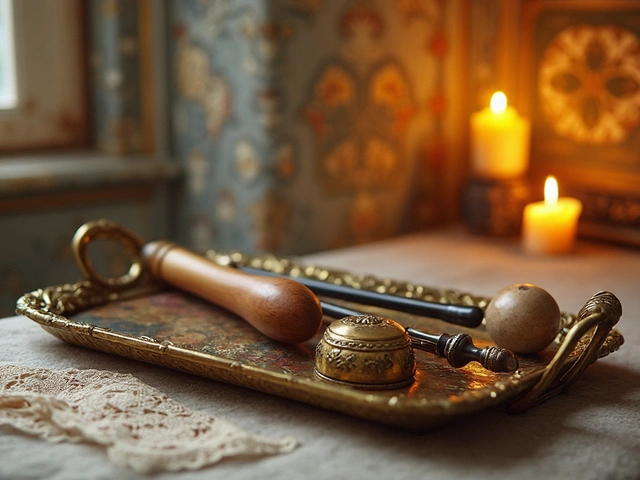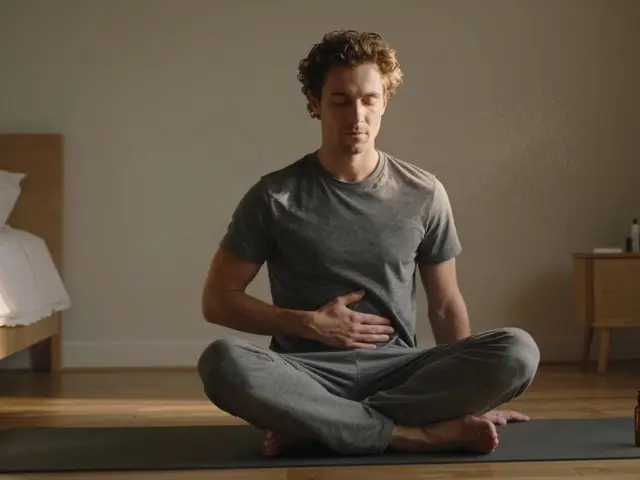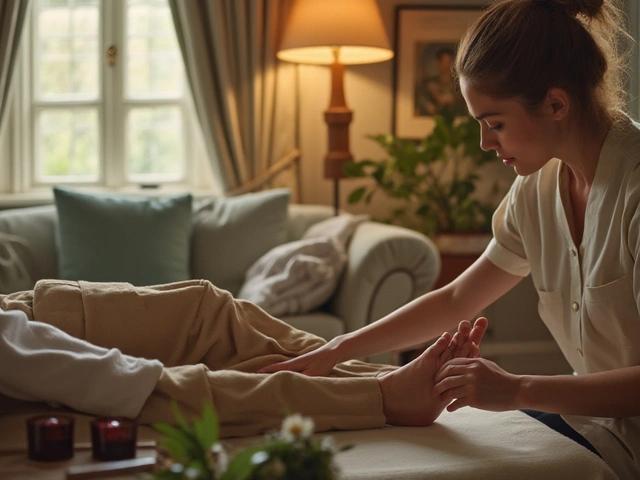Safe Use of Tantric Massage Tools: A Practical Guide
Mar 17 2025
Libido problems are common and usually fixable. First, think of libido as energy for sex - not a character trait. Low desire can come from stress, poor sleep, hormones, medications, or a shaky relationship. Physical causes include low testosterone in men, thyroid issues, or side effects from antidepressants. Emotional causes may be anxiety, past trauma, or fading attraction. Lifestyle choices like heavy drinking, smoking, too little exercise, or poor diet make a big difference.
Start by tracking. Keep a simple 2-week note: sleep hours, mood, meds, alcohol, sex interest. Patterns pop up fast. If low desire follows late nights or a stressful week, lifestyle changes will help. If it's constant for months, dig deeper. Talk with your partner without blaming. Use "I" sentences: "I miss our closeness" beats "You never want sex." Small talks lead to practical changes like scheduling intimacy or cutting off screens before bed.
Small habits give quick wins. Sleep seven to eight hours. Move your body 20-30 minutes a day - brisk walking or a short workout raises mood and libido. Cut back on alcohol and recreational drugs; they numb desire. Eat balanced meals with healthy fats, protein, and veggies; extreme dieting can kill your sex drive. Try breathing exercises or short meditation to lower stress fast.
Try sensual touch without pressure. Spend ten minutes a day giving or receiving non-sexual touch: a simple back rub, holding hands, or a warm shower together. Sensual massage can help by reducing tension and increasing body awareness. Ask for a slow, full-body session focused on relaxation rather than performance. Tantric or lingam-style techniques can spark curiosity, but communicate boundaries first.
Try a one-week experiment: pick three nights for short intimacy rituals. Night one: 15 minutes of relaxed chatting and eye contact. Night two: a 10-minute sensual massage focusing on shoulders and neck. Night three: a shared warm bath or shower with soft touch. Skip alcohol on those nights and aim for bedtime an hour earlier. Repeat the plan and adjust what works. Note how desire changes.
Change medication only with a doctor. If you suspect antidepressants or blood pressure meds are the cause, don't stop them on your own. Ask your prescriber about alternatives or dose adjustments. Blood tests for hormones and thyroid are simple and often revealing.
See a doctor if low libido lasts more than three months, comes with pain, or includes symptoms like fatigue, weight change, or mood swings. A GP can order hormone tests, check for medical causes, and refer you to a sex therapist or urologist. Pick a therapist who focuses on sexual health; they help with communication, anxiety, and practical exercises. Couples therapy can be valuable when relationship issues play a big role.
Fixing libido problems takes curiosity and small steps. Track patterns, try sleep and movement first, use gentle sensual touch to reconnect, and get medical help when needed. You don't have to fix everything at once - one small change can make desire return.
Hey there! Considering libido problems can be a touchy subject, we're diving into some natural therapeutic solutions you might not have thought of. We'll talk about how testicle and penis massages can actually help deal with libido issues. These techniques have been around for ages and work on improving blood flow and relieving stress, as well as enhancing sexual health. So, go ahead and read on to open the door to a potentially more satisfying and natural solution!

Mar 17 2025

Jan 28 2026

Sep 8 2025

Sep 18 2024

Jan 22 2024